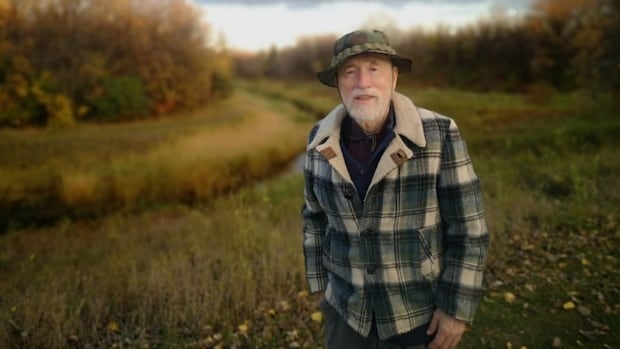The wife of a man with dementia who disappeared a year ago says she can’t get Canada Pension Plan survivor benefits without proof he’s dead, which would cost her thousands of dollars in legal fees.
Brenda Moberg, whose 81-year-old husband, Earl, was last seen on Dec. 12, 2023, said she is losing hundreds of dollars per month because she doesn’t have a death certificate.
Moberg, 74, believed search parties would find her husband alive after he went missing in Winnipeg’s River East area, but as months passed, she started to lose hope.
In summer, she contacted Employment and Social Development Canada, the federal department that administers the Canada Pension Plan, to make the department aware of his disappearance.
The department then suspended Earl’s CPP until she could prove his death to receive the smaller survivor’s pension.
“They didn’t want me to be receiving all this money and then not being able to pay it back when the death certificate is finally settled, or presumption of death. They didn’t want me owing money, but if they owe me money, then they’ll only pay me back [up to] 12 months,” Moberg said.
Moberg said she is entitled to 60 per cent of her husband’s CPP, which amounts to approximately $700 per month.
“The thing that gets me is I think I should be getting this money, you know what I mean? He’s been missing for a whole year. The chances of him being alive are very non-existent.”
The federal department told her to submit a freedom of information request to Winnipeg police to get records proving Earl is considered a missing person.
A co-ordinator handling her request on behalf of the Winnipeg Police Service said in order to get the records, Moberg had to provide proof of a power of attorney, a letter from the federal department requesting the police report, and a death certificate — but if she had a death certificate, she wouldn’t need the report.
Her freedom of information request was denied.
“Unfortunately without a death certificate, or documentation presuming such, we are unable to provide any information regarding your husband,” the co-ordinator said in an email to Brenda that was shared with CBC.
Lawyer too expensive
A Winnipeg Police Service public information officer said they can’t comment on the case due to privacy concerns.
Moberg contacted the federal government department about the issue again, and an agent told her to send over any communication she’s had regarding her freedom of information request, which she did — but because she still didn’t have paperwork presuming his death, nothing more could be done, she said.
“Brenda Moberg has not been denied the CPP survivor benefit as Service Canada has not yet received an application for a CPP survivor’s pension,” the department said in an email to CBC.
Once she submits an application, the department will let her know if more information is required.
Moberg has thought about getting a lawyer to help, but it would be too expensive, she said.
Hiring an estate lawyer to work on a case like this could cost a minimum of $4,000 to $5,000, depending on how long it takes for evidence, including medical records or police reports, to be collected, said associate attorney David Wiebe, who handles wills and estates at Taylor McCaffrey in Winnipeg.
If a spouse or family member doesn’t have a couple thousand dollars to get a lawyer, it can stop them from accessing benefits they would otherwise be entitled to, Wiebe said.
“Lots of legal proceedings are expensive and … it can be tricky for people to get access to lawyers to help them through the process,” he said.
It can take months to prove someone is presumed dead under Manitoba’s Presumption of Death and Declaration of Absence Act, especially if there are issues trying to obtain records.
He described a case in which police were ordered by the court to release records on the missing person, so he could continue filing paperwork to help prove that person dead.
Moberg said her only other option is to wait seven years so Earl can be presumed dead in court.
The back-and-forth communication with the federal government is frustrating and has now continued past the one-year anniversary of her husband’s disappearance.
“It just made everything more difficult when they cut it off so abruptly,” she said.
“I had to make some adjustments financially in order to pay my bills now because, you know, you’re used to a certain amount of money.”
The CEO of a national seniors’ advocacy group said she’s heard regularly from older adults who have had trouble accessing basic benefits in Canada.
“Increasingly what we’re seeing are cases like this one, where somebody has gone missing for an extended period of time who is an older person, typically with some form of cognitive impairment, but they simply can’t prove the person is dead,” said CanAge CEO Laura Tamblyn Watts.
Requirements to get benefits such as the survivor’s pension do not adequately deal with a case like this one, Tamblyn Watts said.

“It’s important for us to reflect on what is the problem we’re trying to solve here and, in this case, what we’re trying to solve is making sure that this presumed widow has access to enough money to live.”
It can be difficult for low-income older adults to put food on the table, not to mention being able to afford a lawyer, she said.
“In the end, what happens is that older people, especially poorer older people, will lose out the very benefits that they need the most,” Tamblyn Watts said.


